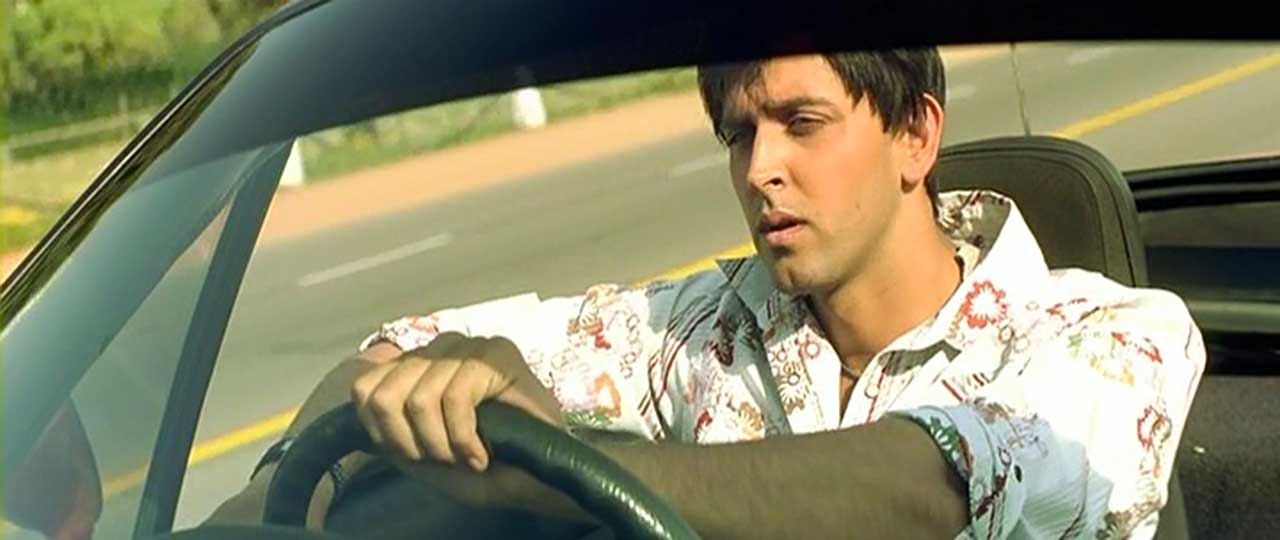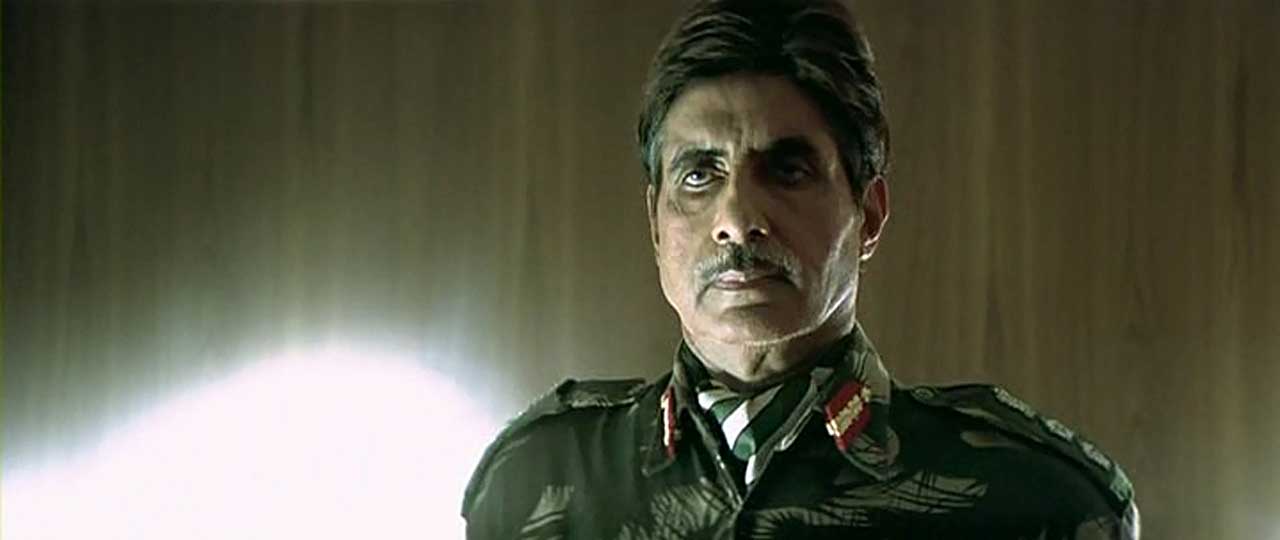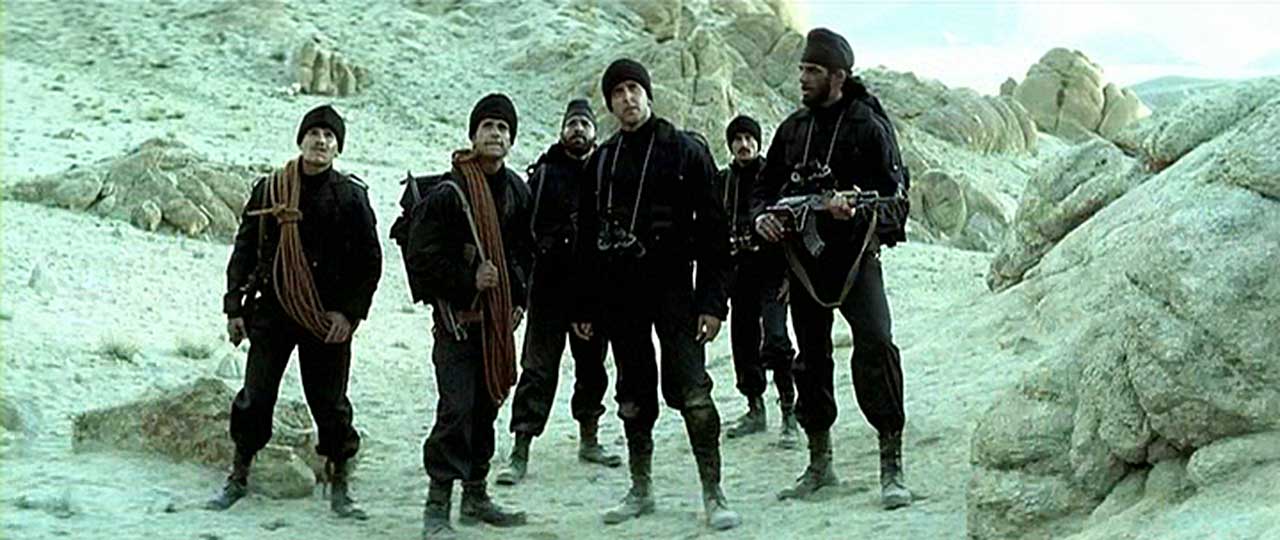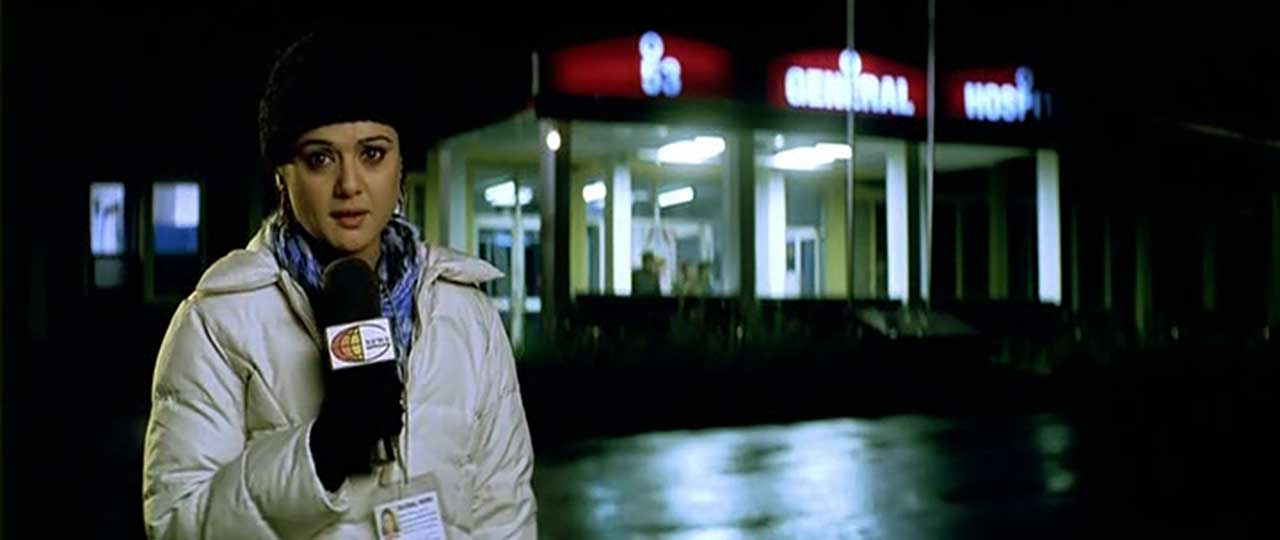In the chaos of life’s mundanity, we often look up to movies to provide us with entertainment, hope and a life lesson or two. And when cinema imparts that lesson with a near-universally identifiable character and a story that resonates so hard with audiences that it strikes a chord near-impossible to demolish, it wins laurels. Every once in a while though, a movie takes such leaps with its storytelling and filmmaking prowess that it takes a while for audiences to catch-up. These are the movies that do not do as well upon their initial release but go on to acquire cult followings and win posthumous appreciation once the audience has matured enough to fully absorb the said film’s contents.
Lakshya at its core is a poignant story of a man named Karan Shergill, who struggles with one of life’s most fundamental issues that the youth grapple with during their teenage years: aimlessness. Born filthy rich, ambition is the last thing on Karan’s mind. He spends most of his time loitering around the college campus, consuming pop-culture and cushioned in the comfort of a steady relationship. That last part notwithstanding, it’s pretty much every one of us at an early stage in our lives. Casting the financial background aside then, writer-father Javed Akhtar and director-son Farhan Akhtar present us with a protagonist trapped in a situation that nearly each of us can connect with.
The best of movies take such a character and have him undergo a journey that seems impossible on paper, and yet is presented with such conviction that a belief in it inspires hope. That’s precisely the metamorphosis that Karan undergoes when he takes a plunge into the world of the Indian Army, purely following up in his friend’s footsteps. Now for the rest of the world, this may seem like a rather stupid thing to do but it’s a fairly common way out of a tricky career crisis in India – have blind faith in your best buddy and take the plunge because what good is an employment without pals. And when the said friend chickens out, Karan finds himself stuck in a world not meant for a softie like him. He is petrified, exasperated even, of this jarring shift from vacation to vocation. He struggles, falters and faced with insurmountable odds, does what a sane man in his situation would do: deserts his post.

That your chief protagonist is so beaten down that he takes the easy, shameless way out seems a little hard to swallow at first. And yet, Karan does exactly what any of us would’ve most likely done in a situation like his. As a consequence of his actions, he loses the respect of his parents and his girlfriend, who was the one firm anchor in his life. The resulting humilation breaks him first, but eventually humbles and unshackles him. Unhinged, with nothing to hang on, it’s as if something snaps and Karan returns to the army, steadfast, spending the next few weeks of his life with unwavering devotion and becomes fully dedicated into completing the training at any cost. You can guess where he goes from there but suffice to say, it’s all handled pretty well.
What follows is the crux of Lakshya‘s failure, yet one of the finest pieces of war-action filmmaking you’ll ever see in an Indian movie. Shergill spends his time with the army team positioned at Kargil and is quickly embroiled in a tug-of-war with the rival Pakistani force. Of course success eventually comes but at a great cost, amid much struggle and some tough choices. The journey there involves lots of firing, death, ambush and a riveting rock-climb that contains a fair bit of strategy and melodrama centrifuged together. And amid this turmoil, Karan quietly battles his inner struggles as his (ex-)girlfriend Romila Dutta is sent to cover the war in a subplot inspired from Barkha Dutt’s coverage of the original 1999 Kargil conflict.
Like many unfortunate cases, Lakshya‘s failure had a lot to do with its marketing, timing and timeliness than its content. Promotions largely centered around Karan’s life during his college days, painting the picture of a light, fun college-going movie throwing shades on today’s wandering youth before perhaps settling in on an army-focused climax. Instead, Lakshya was clearly divided into two halves that felt like two separate movies entirely; the first half almost played out like a romantic comedy, whereas the second half resembled a war film. These diverse genres were polar opposites, neither having been mashed together in a single movie before. Farhan attempted and the audience responded, albeit less enthusiastically than was hoped. Everyone favored the light first half and showed disdain for the second.

That is a travesty given what a filmmaking marvel the second half is. It itself is structured into three acts – the beginning, where the Indian Army troops momentarily taste victory, rejoice and establish an interim base, the middle where the Indian Army is mercilessly defeated and suffers mammoth losses and the end where they retaliate strategically by having some soldiers flank the very peak occupied by enemies of the state while sending a splinter group to ascent the tall mountain peak as the army shells to provide cover and distract the enemy. These acts are laden with superior choreography, tactical plannning, emotions and some great messages. A particular standout is a painfully true speech by late veteran actor Om Puri about the tendency of humans to divide everything under the sun and the moon. Yet another standout sequence is the touching reconciliation between father and son as Karan calls up his Dad before the final mission, strengthening an estranged relationship. All of it has the potential to come across as hackneyed or contrived but none of it does.
Thematically, Lakshya is the epitome of the kind of hope and direction that the youth need in their careers. The internet is flooded with countless stories of people inspired by the exploits of Karan Shergill who helped steer their lives in the right path, even if that path didn’t necessarily culminate in a militaristic outlook. I count myself among those people, going through a turbulent inner crisis of ambition and identity myself; watching Lakshya in a movie theater awakened me to what I thought was possible to achieve if one set their sights on it. It was a minor, insignificant struggle in the grand scheme of things and compared to what people go through, it was a speck in the dirt. But that speck rightfully lit up my life at just the right moment inspiring a sea of changes leading me to where I am today. It’s no surprise that I own Lakshya on DVD and would gladly buy Lakshya on Blu-Ray again if it ever were released in that format.
Farhan Akhtar is one of India’s rare accomplished filmmakers whose films were years ahead of the country’s current cinema and Lakshya is no different. The cinematography by Christopher Popp is right up there with international standards at a time when India was just coming out of the ashes of the burns fueled by 90s cringe-fest movies. At over 3 hours, it ran a tad bit too long but editor Anand Subhaya grants the film a luxury that lets it flow smoothly while also ensuring that both parts of Karan’s life play out luxuriously. The writing by Javed Akhtar is among the finest in commercial cinema; I dare you to find more meaningful and well-written dialogue in an Indian movie of this scale today. The visual effects, which most people don’t even realize are there, immerse you completely without a single sequence appearing flawed or out of place. Expertly employing a mix of green screen and practical miniatures, the team behind Lakshya recreates the rock climbing sequence in a backlot with such finesse that you’ll actually believe they made the climb. I highly recommend checking out Lakshya‘s rock climbing behind the scenes footage if you haven’t.

And Shankar-Ehsaan-Loy lend the movie their fabulous sounds after the unexpected success of Dil Chahta Hai that infuses Lakshya with a distinct, aural identity that is aesthetically pleasing, yet commercially appealing. Whether its the peppy numbers in the first half, or the gallery of singers assembled for Kandhon Se Milte Hai Kandhe, the quiet, introspective peaceful nature of Kitni Baatein and most importantly, the surge of emotion that the title track provides, the songs in this film are unskippable, inspirational and powerful. The song Lakshya is an anthem that lingers on long after the movie is done; the kind of stuff you play on repeat before setting of achieving your day’s mission.
The film is rounded up by a supporting cast that puts in every effort possible to make their characters seem like real people with the little screen time that they’re devoted. Lest you forget, it features heavyweights like Amitabh Bachchan and Boman Irani who, with their limited appearances, really hit all the right notes. Om Puri is perhaps the most endearing of them all, disseminating utilitarian wisdom to Karan that carry him through the battle’s trying waters. Preity Zinta takes on a meaty role especially in the second half and while she feels out of place at times, she does her best to provide some authenticity to the coverage and masquerade her relationship pains. But it is truly Hrithik Roshan who, with his nuanced portrayal of Karan Shergill across different phases in his life (and different hairstyles), wins you over by a such a margin that he ends up overshadowing Mr. Bachchan himself. From the flailing, reckless young man, Roshan transforms into the battle-hardened soldier who will stop at nothing to accomplish his goal, making it at once personal for him. Who can forget the brilliant sequence near the mountain-top where he points towards his “Lakshya” and tries so hard to scream something or shout a slogan but walks off silently instead. It’s the kind of Roshan we all fell in love with and it’s sad we haven’t seen him do more of that stuff.
But really, the winner among all the filmmaking, acting and behind-the-scenes talent that worked tirelessly on this film was Lakshya itself. It may have lost the box-office battle but it won the war of fame and continues to be fondly remembered as a cult film among critics and audiences alike. Its messages of war, ambition, career-drive and familial bonding resonate to this date. It’s soundtrack refuses to age and the cinematography and direction are top-notch enough to fool anyone into believing it came out today, despite releasing a good 15 years ago. It’s a movie so beloved among a section of the audience I’m surprised it hasn’t been given a limited re-release at least. Peaceful efforts with Pakistan and a barrage of war-movies in a short space of time might have led to its downfall back then. But with Indian audiences having evolved quite a bit, it certainly makes sense to give Lakshya a limited re-release in theaters. At the least, Excel Entertainment ought to bring Lakshya to Blu-Ray in glorious 1080p; it’s criminally unjustified for a movie as well-rounded as this to not exist in Full HD 1080p. I’m sure there’s a print lying around somewhere.

Anyway, I digress. For all intents and purposes, Lakshya was, and is a great movie. And like many other movies, it’s box-offie flop is tied more to the year it was released than the story it was telling. That doesn’t take away from its legacy, its sheer filmmaking prowess and its ability to inspire a subset of a generation. On its 15th anniversary, consider this review my tribute to Lakshya. And ode to a film that continues to resonate with the right audience and stands tall as one of the finest films ever made in Bollywood and in Indian cinema.
Lakshya Movie Rating: 10 out of 10





